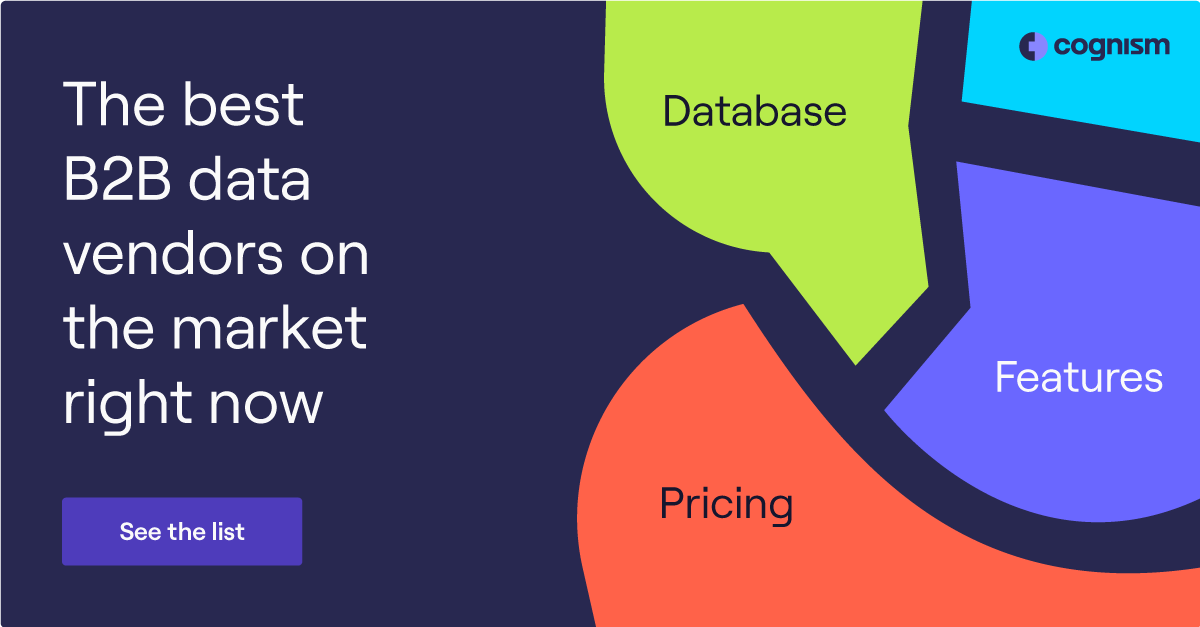Key Attributes to Search For When Picking a Database copyright
Choosing a data source service provider is an important decision that can substantially influence your organization's data and operations monitoring approach. Among the crucial features to think about are scalability alternatives, which ensure that your system can adapt to expanding needs. Security procedures, efficiency metrics, and consumer support additionally play critical functions in this analysis process. As you weigh these aspects, it comes to be evident that the choice is not simply regarding capability yet also regarding lining up with your long-lasting vision. What various other factors to consider might affect this important decision?
Scalability Options
When selecting a database company, recognizing scalability choices is crucial to ensuring that the picked remedy can fit future growth. Scalability describes the capability of a data source system to broaden its capability and performance in reaction to enhanced demand. There are two primary sorts of scalability: straight and upright.
Upright scalability, or "scaling up," includes enhancing a single web server's resources, such as CPU, RAM, or storage. This strategy can be affordable and straightforward for smaller sized applications however may get to a limitation where even more upgrades are unwise or as well expensive.
Horizontal scalability, or "scaling out," includes adding extra servers to disperse the tons. This approach permits for higher adaptability and can fit significant boosts in data quantity and user web traffic (database provider). It is specifically helpful for cloud-based database options that can dynamically assign sources based on demand

Safety And Security Measures

When examining safety procedures, think about the implementation of encryption methods (database provider). Data-at-rest and data-in-transit security are necessary to make sure that sensitive information stays protected, also in case of a safety breach. Additionally, seek suppliers that provide strong verification systems, such as multi-factor authentication (MFA), to additionally improve accessibility control
Regular security audits and compliance with market standards, such as GDPR or HIPAA, are indicative of a service provider's commitment to information security. In addition, ask about their case reaction plan; a robust plan can decrease the impact of any potential safety and security incident.
Performance Metrics
Examining efficiency metrics is necessary for organizations to guarantee that their selected data source supplier meets operational needs. Secret efficiency metrics consist of feedback scalability, throughput, and time, which jointly establish the effectiveness of data source procedures under varying loads.
Action time is important, as it shows just how promptly the data source can process inquiries and return outcomes. Organizations must seek metrics that indicate average response times during height and off-peak hours. Throughput, typically measured in purchases per 2nd (TPS), offers understanding into the database's capacity to handle high quantities of requests without efficiency destruction.
Scalability analyzes the database's capacity to grow with the company's demands. A durable database service provider should demonstrate horizontal and vertical scaling abilities, enabling seamless adjustments as demands vary. Furthermore, comprehending latency, especially in distributed systems, can help organizations assess the responsiveness of the database throughout different geographical locations.
Consumer Assistance
Trustworthy client support is a cornerstone of reliable data source management, providing organizations with the help required to resolve issues and maximize efficiency. When selecting a data source supplier, examining the degree of customer assistance they provide is important. A durable support group should consist of multiple networks of communication, such as phone, e-mail, and live chat, ensuring that customers can access assistance whenever they require it.
Furthermore, receptive support groups that are available 24/7 greatly improve the reliability of the database solution. Trigger feedback times and efficient resolution of problems can dramatically lower downtime the original source and increase general productivity. It is also helpful to take into consideration the availability of dedicated assistance personnel, that can provide customized support based upon a company's particular requirements.
.png)
Prices Framework
When thinking about a database supplier, the pricing framework is a pivotal aspect that can significantly affect a company's budget and general approach. A transparent and adaptable rates model is crucial for aligning the data source sets you back with company requirements - database provider. Organizations should evaluate whether the prices is based upon consumption, per individual, or a level price, as each model can produce various economic implications in time
It is necessary to analyze any type of extra prices connected with the company's solutions, such as information storage space fees, transaction expenses, and support fees. Some providers may provide tiered prices, enabling scalability as the company expands, while others could impose stringent restrictions that can come to be pricey as information requirements increase.
Furthermore, organizations ought to think about the long-lasting worth of the database option. While lower initial costs can be appealing, they might not account for future upgrades, maintenance fees, or integration costs. Conducting an extensive cost-benefit analysis will help identify one of the most ideal pricing structure that balances assistance, scalability, and efficiency, eventually making sure that the chosen database copyright lines up with the organization's functional and monetary objectives.
Verdict
In verdict, choosing a database provider demands cautious consideration of numerous important functions. Scalability choices guarantee adaptability to future development, while robust security actions protect sensitive details. Assessing efficiency metrics allows the identification of effective databases, and obtainable client assistance improves the general user experience. A clear pricing framework even more adds to notified decision-making. By thoroughly examining these factors, companies can make strategic options that align with their lasting objectives and functional requirements.
Selecting a database service provider is an essential decision that can dramatically impact your organization's operations and information administration approach.When address choosing a data source copyright, recognizing scalability options is vital to guaranteeing that the chosen service can fit future development. When picking a data source copyright, evaluating the level of customer support they provide is crucial.When considering a database service provider, the pricing structure is a go critical element that can considerably affect an organization's budget and overall strategy. Conducting a comprehensive cost-benefit analysis will certainly aid recognize the most ideal rates framework that balances performance, support, and scalability, eventually guaranteeing that the selected database company aligns with the company's economic and operational goals.